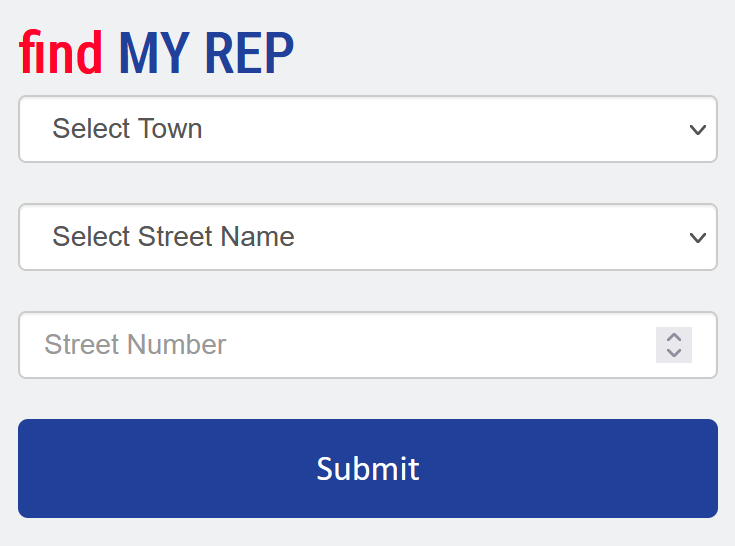Seniors


HELP FOR HOSPITAL PATIENTS
Hospital Training and Procedures for Patients with Suspected Dementia
To better identify and treat the increasing number of patients in Connecticut suffering from dementia from Alzheimer’s and other diseases, hospital staff members who provide direct care to patients are now required to receive training on how to identify the symptoms of dementia.
Patient-Designated Caregivers
Some patients end up returning to the hospital soon after discharge because they have not been instructed properly on their follow-up care or were unable to follow instructions. Under the CARE Act (Caregiver Advise, Record, Enable), a hospital must assign a caregiver, designated by the patient, in the patient’s discharge plan. They will notify that caregiver of the patient’s discharge, and instruct them on any post-discharge tasks with which the patient will need assistance.
![]()
CONSUMER PROTECTIONS
Medications Now Available in 90-Day Quantities
To better help patients with chronic illnesses and others who have a hard time making a monthly trip to the drug store, pharmacists are now allowed to refill a prescription for up to a 90-day supply.
- The 90-day supply must not exceed the total quantity prescribed by the doctor,
- The prescription must not be for a controlled drug.
- The pharmacist must inform the doctor of the refill within 48 hours after the refill is made.
This does not apply to patients whose insurance won’t cover the cost without additional copayment.
More information on Prescription Bottle Labels
Pharmacists must now include the website and telephone number for the FDA’s drug safety and reporting program (MedWatch) and the manufacturer’s name with generic drugs. If the patient is being given a generic drug, the pharmacist must include the brand name on the label. This will help to ensure that patients are aware of what drugs they are taking, where these drugs come from and where to report adverse effects of the drugs.
MedWatch Link: https://www.accessdata.fda.gov/scripts/medwatch/index.cfm?action=reporting.home
Protecting Elderly Consumers
We have taken important steps to protect our seniors from being taken advantage of financially. Because of our efforts:
- Certain financial agents must receive training on elderly fraud, exploitation, and financial abuse.
- Someone convicted of 1st or 2nd degree larceny or 1st degree abuse of an elderly or disabled person is prohibited from inheriting, receiving insurance benefits, or receiving certain property.
Establishing a Bill of Rights for Residents of Continuing-Care Retirement Communities
We created a bill of rights for senior citizens living in continuing care retirement communities that makes sure:
- Residents have a voice in decisions that affect them within these communities.
- Information regarding the financial stability of the facility will be made more transparent.
- Residents will be notified of major construction or changes in ownership.
- Residents will have more independence in making decisions about their medical care and assisted living services
- Reasonable accommodations for disabilities are made under the Americans with Disabilities Act.
Protecting Suspected Elderly Abuse Victims
We have also focused on protecting our seniors from the dangers of elder abuse:
- EMTs have been added to the list of mandated reporters of elder abuse.
- In situations where abuse or neglect of an elderly person is suspected, the Department of Social Services may now petition a probate court to gain access to that person’s premises to make an assessment.
- For the purpose of DSS investigations and services, the definition of neglect has been expanded to include elderly people who do not live alone but whose caretaker fails to provide or arrange to provide for services necessary to maintain the physical and mental health of the elderly person.
- The Department of Social Services must notify a nursing home resident’s designee or legal guardian of any suspected abuse, neglect, exploitation or abandonment within 24 hours of receiving notice from a medical provider or other mandated reporter.

EMPLOYMENT OPPORTUNITIES
Ready to Work Program
This program provides job skills training to low-income individuals age 55 and older in Connecticut. To qualify, you must be unemployed and have an annual family income that is not more than 125% of the federal poverty income guidelines (single/$14,588 and family of three/$24,738).
Participants are placed in temporary training assignments to gain on-the-job work experience. They work 20 hours a week at the training sites for minimum wage. The program is designed to:
- Help our older workforce learn new job skills
- Assist in resume development and the search for a job
- Increase opportunities to obtain jobs in the private sector
- Change stereotypes about older workers through public education and demonstrated success
For additional information about Ready to Work, please contact Jennifer Gorman at (860) 424-5643 or at Jennifer.Gorman@ct.gov
![]()
RESOURCES
The Consumer Law Project for Elders
The Consumer Law Project for Elders provides free legal assistance to Connecticut residents age 60 or over who have questions about:
- Consumer rights
- Debt or collection problems
- Receipt of bills for items never purchased
- Identity theft
- Bankruptcy
- Dispute of goods or services purchased
- Unfair and undisclosed loan terms
For more information, call 1-800-296-1467. Spanish speaking staff is available.
http://ctlawhelp.org/self-help-guides/elder-law/consumer
Connecticut Home Care Program for Elders (CHCPE)
Low-to-moderate-income families caring for someone 65 or over at home, who would otherwise be at risk of nursing home placement, can apply to this program. There are different levels of eligibility based on income and/or assets. For more information, and to receive an application or make a referral, call the Alternate Care Unit at CT’s Department of Social Services 1-800-445-5394.
http://www.ct.gov/dss/cwp/view.asp?a=2353&q=305170
Long-Term Care Insurance
Getting long-term care insurance coverage can save you lots of money since many long-term care policies will pay for at least some in-home care. Be sure to consult your insurance company or agent. For more information about getting Long-Term Care
Insurance, contact the Connecticut Partnership for Long-Term Care at 1-800-547-3443.
The Way to Go CT Mobility Management Program
This program helps senior citizens, veterans and people with disabilities understand their transportation options and see all of the services available. For more information, please call 860-667-6207 ext. 17 or go online.
Kinship Fund and Grandparents and Relatives Respite Fund
If you or someone you know is a relative who is an appointed guardian of a child and does not receive foster care payments or subsidized guardianship benefits from the Department of Children and Families, you may apply for grants from these funds.
http://www.ctprobate.gov/Pages/Kinship-and-Grandparent-Respite-Fund.aspx
The CHOICES Program (Connecticut’s program for Health insurance assistance, Outreach, Information and referral, Counseling, Eligibility Screening)
The CHOICES program is an information source for services available to individuals age 60 and older and those with disabilities. It provides help with Medicare and other related health insurance options. They also make referrals to appropriate agencies in order to help individuals get the services they need. Contact a CHOICES counselor at 1-800-994-9422 for assistance and help understanding the Medicare options available so you can make an educated choice about your coverage.
http://www.ct.gov/agingservices/cwp/view.asp?a=2511&q=313032
Important Telephone Numbers
General Assistance: 2-1-1
Department of Social Services: 855-626-6632
Tax Department: 800-382-9463
Consumer Protection: 800-842-2649
Department of Veterans’ Affairs: 866-928-8387
Office of the Healthcare Advocate: 866-466-4446
Medicare: 800-633-4227
Center for Medicare Advocacy: 800-262-4414
Connecticut Insurance Department: 800-203-3447
CT Fair Housing Center: 860-247-4400
Connecticut Legal Assistance: 860-344-0380






